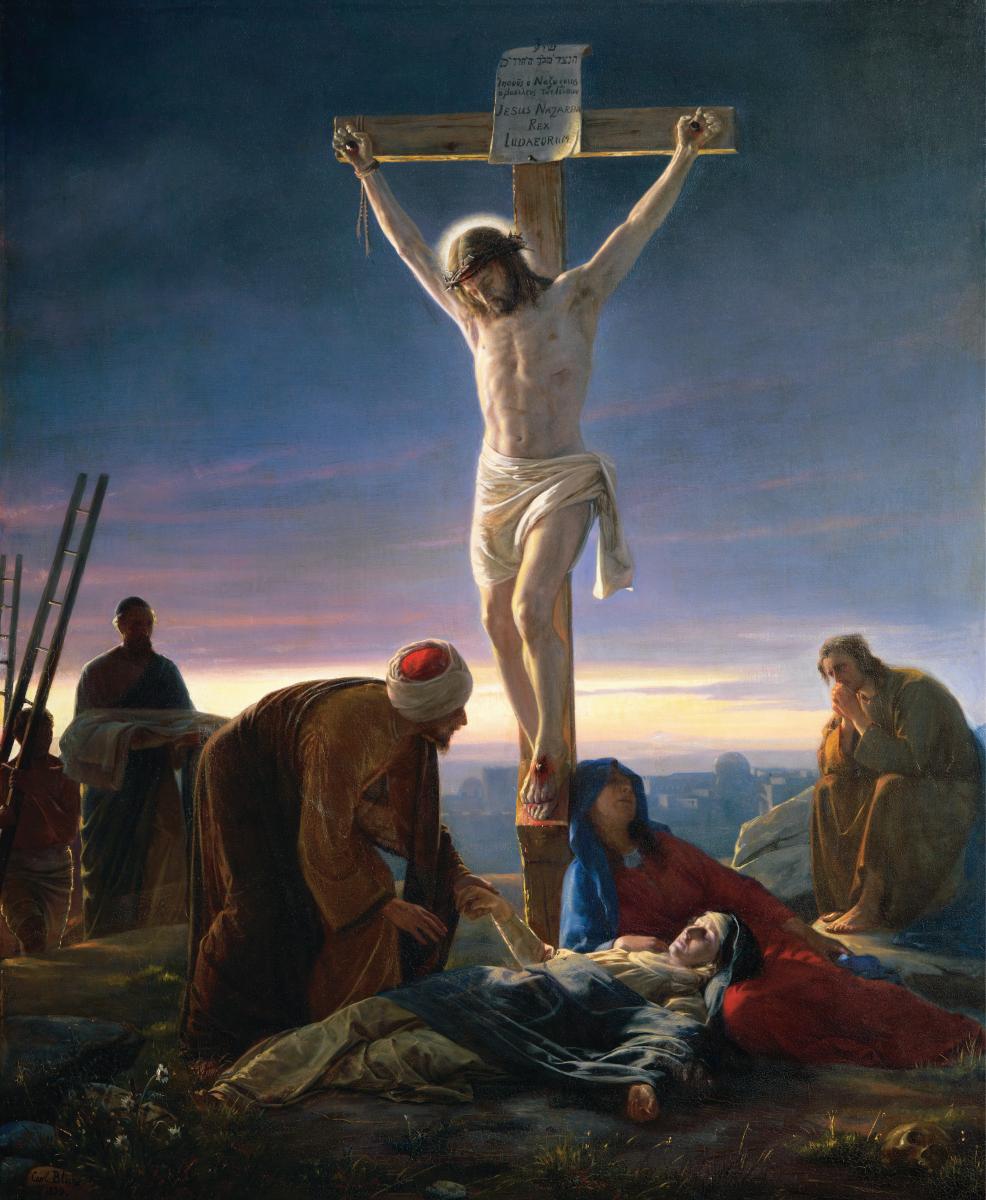- Feb 5, 2002
- 166,635
- 56,268
- Country
- United States
- Faith
- Catholic
- Marital Status
- Married
- Politics
- US-Others
We do well to ponder the whys and wherefores of the Passion of Our Lord. St. Thomas Aquinas presents the premise that God does nothing in an arbitrary way, but rather as Lord of History sets forth everything in fitting ways and at appropriate places and times. Every detail has something to teach us.
Let’s consider why Christ suffered in Jerusalem (but outside its walls) in a place called “the skull.” St. Thomas covered these matters in his Summa Theologiae, Part III, Question 46, Article 10. His words are in bold, black italics; my inferior comments are shown in plain red text.
Christ died most appropriately in Jerusalem. First of all, because Jerusalem was God’s chosen place for the offering of sacrifices to Himself: and these figurative sacrifices foreshadowed Christ’s Passion
For the Jewish people of that time, there was only one place to offer sacrifices to the Lord: Jerusalem. Although towns had synagogues, only Jerusalem had the Temple, and one had to go there to offer sacrifices to the Lord.
This rule had become quite firm. Indeed, even when Temple sacrifices were interrupted during the Babylonian captivity (the Temple was destroyed in in 587 B.C. and not rebuilt until about 70 years later), rather than relocate the place for sacrifice, the people lamented, We have in our day no prince, prophet, or leader, no burnt offering, sacrifice, oblation, or incense, no place to offer first fruits, to find favor with you (Daniel 3:38).
Therefore, because salvation is from the Jews (Jn 4:22), it was fitting that Christ, our Paschal Lamb and perfect, once-for-all sacrifice, was sacrificed in the only acceptable place.
Continued below.

Let’s consider why Christ suffered in Jerusalem (but outside its walls) in a place called “the skull.” St. Thomas covered these matters in his Summa Theologiae, Part III, Question 46, Article 10. His words are in bold, black italics; my inferior comments are shown in plain red text.
Christ died most appropriately in Jerusalem. First of all, because Jerusalem was God’s chosen place for the offering of sacrifices to Himself: and these figurative sacrifices foreshadowed Christ’s Passion
For the Jewish people of that time, there was only one place to offer sacrifices to the Lord: Jerusalem. Although towns had synagogues, only Jerusalem had the Temple, and one had to go there to offer sacrifices to the Lord.
This rule had become quite firm. Indeed, even when Temple sacrifices were interrupted during the Babylonian captivity (the Temple was destroyed in in 587 B.C. and not rebuilt until about 70 years later), rather than relocate the place for sacrifice, the people lamented, We have in our day no prince, prophet, or leader, no burnt offering, sacrifice, oblation, or incense, no place to offer first fruits, to find favor with you (Daniel 3:38).
Therefore, because salvation is from the Jews (Jn 4:22), it was fitting that Christ, our Paschal Lamb and perfect, once-for-all sacrifice, was sacrificed in the only acceptable place.
Continued below.

Why Did Christ Die in Jerusalem? And, Why Outside the City Gate, Not in the Temple - Community in Mission
We do well to ponder the whys and wherefores of the Passion of Our Lord. St. Thomas Aquinas presents the premise that God does nothing in an arbitrary way, but rather as Lord of History sets forth everything in fitting ways and at appropriate places and times. Every detail has something to teach...
blog.adw.org
